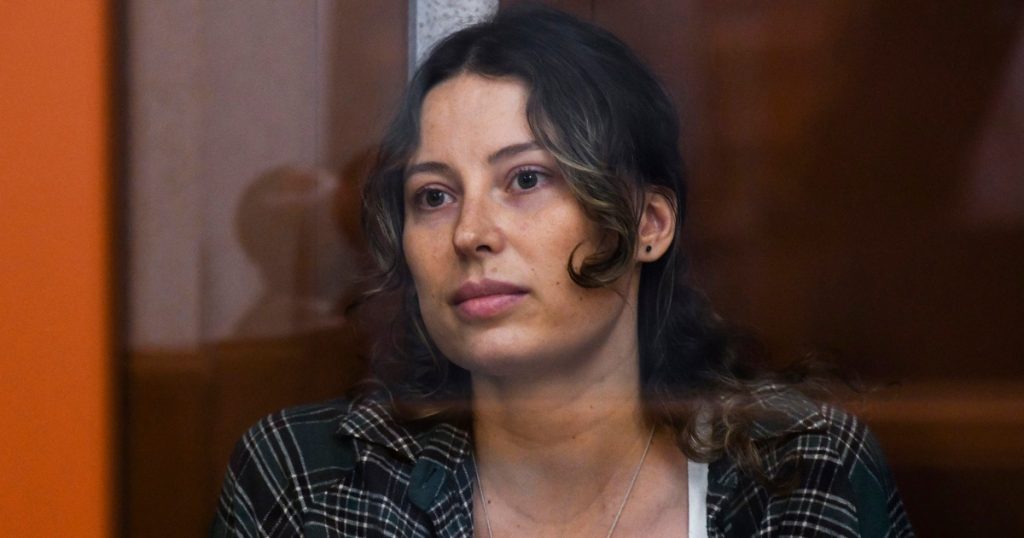Ksenia Karelina, a U.S.-Russian ballerina, has been sentenced to 12 years in a penal colony for “high treason” after allegedly donating funds to a Ukrainian charity during Russia’s invasion of Ukraine in 2022. Karelina, who was visiting family in Russia at the time, was found to have gifted $51.80 to a Ukrainian charity. The specifics of the alleged donation have not been confirmed, but the Russian court determined that the funds were used to purchase military supplies for the Ukrainian armed forces. Karelina’s sentencing is part of a wider crackdown on dissent in Russia since the start of the war with Ukraine, with authorities banning any criticism of the military.
The 33-year-old ballerina admitted her guilt in a closed trial in Yekaterinberg, Russia, and was also fined 300,000 Rubles ($3,361). The court stated that Karelina’s sentence will come into force in 15 days unless appealed. This case is part of a pattern of detentions of citizens of Western nations in Russia, including the recent release of four U.S. residents in a prisoner exchange. Karelina’s conviction highlights the increasingly restrictive environment for individuals who are perceived as going against the Russian government’s policies, particularly in relation to the conflict in Ukraine.
The Russian government’s response to the conflict in Ukraine has led to a crackdown on dissent and an increase in prosecutions for perceived acts of “high treason.” Karelina’s case is just one example of this trend, which has seen individuals facing serious consequences for supporting a Ukrainian charity or criticizing the military. The government’s actions have been criticized by human rights organizations and foreign governments, who argue that individuals should be able to express their views and support causes without fear of reprisals.
Karelina’s sentencing is particularly concerning given the lack of transparency and due process in her case. The court proceedings were closed, making it difficult to verify the specific details of the allegations against her. Furthermore, the severity of the sentence, including 12 years in a penal colony, raises questions about the fairness and proportionality of the punishment. The lack of information and the harshness of the punishment highlight the challenges facing individuals who find themselves caught up in the Russian government’s crackdown on dissent.
The international community has expressed concern over Karelina’s case and the broader crackdown on dissent in Russia. Human rights organizations and foreign governments have called for her release and for the Russian government to respect individuals’ rights to freedom of expression and association. The sentencing of Karelina and others like her has raised alarms about the shrinking space for civil society in Russia and the risks faced by those who speak out against government policies.
In conclusion, Ksenia Karelina’s sentencing to 12 years in a penal colony for alleged “high treason” highlights the increasingly repressive environment in Russia, particularly in relation to the conflict in Ukraine. The lack of transparency and due process in her case, as well as the severity of the punishment, have raised concerns among human rights organizations and foreign governments. Karelina’s conviction is part of a broader pattern of crackdowns on dissent in Russia, which has seen individuals facing serious consequences for supporting causes or expressing views that go against the government’s policies.


